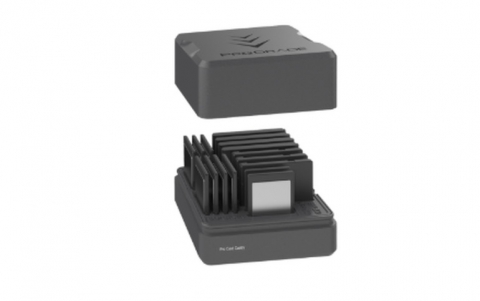
Apple: We Are Still Studying Google Voice App
Contrary to published reports, Apple on Friday said that it did not reject an iPhone application submitted by Google and that it was still studying it due to privacy concerns.
Apple's responded to a commission inquiry into the reason the Google Voice service, which offers users free domestic telephone calls, discounted international calls and SMS messages, had not been allowed into the Apple iPhone App.
"Apple has not rejected the Google Voice application, and continues to study it. The application has not been approved because, as submitted for review, it appears to alter the iPhone?s distinctive user experience by replacing the iPhone?s core mobile telephone functionality and Apple user interface with its own user interface for telephone calls, text messaging and voicemail," reads Apple's response to the Wireless Telecommunications Bureau?s inquiry dated July 31, 2009, requesting information regarding Apple?s App Store and its application approval process.
"The Google Voice application replaces Apple?s Visual Voicemail by routing calls through a separate Google Voice telephone number that stores any voicemail, preventing voicemail from being stored on the iPhone, i.e., disabling Apple?s Visual Voicemail. Similarly, SMS text messages are managed through the Google hub?replacing the iPhone?s text messaging feature. In addition, the iPhone user?s entire Contacts database is transferred to Google?s servers, and we have yet to obtain any assurances from Google that this data will only be used in appropriate ways. These factors present several new issues and questions to us that we are still pondering at this time, "Apple added.
Apple added that applications such as the GVDialer / GVDialer Lite, VoiceCentral and GV Mobile / GV Mobile Free have been also been excluded by the App store, due to similar reasons.
Apple also said that it was acting alone and had not consulted with AT&T about whether or not to approve the Google Voice application.
The commission is examining Internet calling in response to a complaint by Skype that wireless companies are blocking its service from some handsets. The question of whether wireless carriers and handset makers should exercise control over the applications that run on phones, may well play a part in a broad F.C.C. inquiry that is expected to be approved at its Aug. 27 meeting.
"Apple has not rejected the Google Voice application, and continues to study it. The application has not been approved because, as submitted for review, it appears to alter the iPhone?s distinctive user experience by replacing the iPhone?s core mobile telephone functionality and Apple user interface with its own user interface for telephone calls, text messaging and voicemail," reads Apple's response to the Wireless Telecommunications Bureau?s inquiry dated July 31, 2009, requesting information regarding Apple?s App Store and its application approval process.
"The Google Voice application replaces Apple?s Visual Voicemail by routing calls through a separate Google Voice telephone number that stores any voicemail, preventing voicemail from being stored on the iPhone, i.e., disabling Apple?s Visual Voicemail. Similarly, SMS text messages are managed through the Google hub?replacing the iPhone?s text messaging feature. In addition, the iPhone user?s entire Contacts database is transferred to Google?s servers, and we have yet to obtain any assurances from Google that this data will only be used in appropriate ways. These factors present several new issues and questions to us that we are still pondering at this time, "Apple added.
Apple added that applications such as the GVDialer / GVDialer Lite, VoiceCentral and GV Mobile / GV Mobile Free have been also been excluded by the App store, due to similar reasons.
Apple also said that it was acting alone and had not consulted with AT&T about whether or not to approve the Google Voice application.
The commission is examining Internet calling in response to a complaint by Skype that wireless companies are blocking its service from some handsets. The question of whether wireless carriers and handset makers should exercise control over the applications that run on phones, may well play a part in a broad F.C.C. inquiry that is expected to be approved at its Aug. 27 meeting.





















